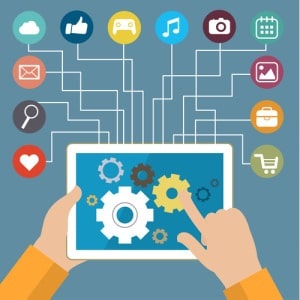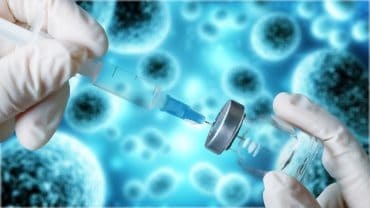
At Northwell Health a new style of app development is being pursued, one that invites clinicians and caregivers to be involved from the start.
Healthcare professionals are usually not involved in an application’s development process, leaving it to the IT department. This can sometimes lead to delays, as the IT department may be inundated with requests, and organizations may see a disparity between original concept and end result.
At Northwell Health, a healthcare organization based in New York, a new style of app development is being pursued, one that invites clinicians and caregivers to be involved from the start.
See also: AI pushes healthcare from the reactive to the preventative
The organization created the Clinical Support System, which enables “a view of the business logic that is easily understood by a clinician, without the need to know a software programing language like SQL or Java.”
Clinicians and caregivers can configure access to the system’s suggestions and reports with minimal intervention from the IT department. This, according to Vipul Kashyap, Director of Clinical Information Systems and Enterprise Information Architect for Northwell Health, will help the organization to “identify new and innovative ways of using technology to enable digital health and to enable better care, better outcomes, lower cost, and improve efficiency.”
The Clinical Support System allows clinicians to view the best health models and care programs for each patient, taking into account previous programs and prescriptions. The system can also prevent physicians from prescribing drugs that may adversely affect patients, due to the physician not knowing about other drugs the patient takes, by flagging the issue before an appointment.
Northwell Health’s new system is built on Red Hat’s Decision Manager 7, a decision management platform uniquely designed for non-tech personnel to understand and utilize. The low-code development software lets organizations build applications at a faster rate and keep development confined to the department that requires the app.
While Northwell Health sees “power users” – clinicians and caregivers with a modest understanding of programming – as the first to use the Clinical Support System, it anticipates those power users will further simplify the process for everyone else in the organization.
“The next step will be to further simplify the creation of business logic so end-consumer types of physicians may be able to specify some limited types of logic. For example, we can provide them with template forms for building the logic,” said Kashyap.
This is only the start for Northwell Health, Kashyap has a vision of the decision engine supporting health monitoring equipment, allowing 24/7, real-time tracking of a patient’s health. Mobile app deployment is another step forward for Northwell, one that may take some time to be realized:
“They are two types of mobile apps – one is the wider-facing mobile apps, which, for example, which can send clinicians notifications about lab results and patients. For the most part, those apps are very well designed, and physicians are pretty comfortable with them. They don’t need training, because everyone knows how to go on an app and order a book these days.”
“The other category of mobile app is still a challenge, as it requires patients owning an affordable device and also to get them to use it. There is potential value but in achieving this, there might be some investments required. There are practical issues which need to be addressed before we can incorporate these technologies into the mainstream,” Kashyap added.




























